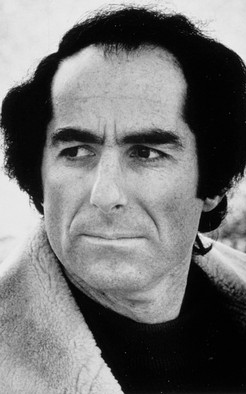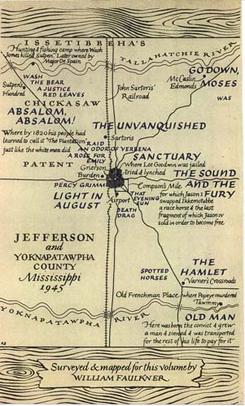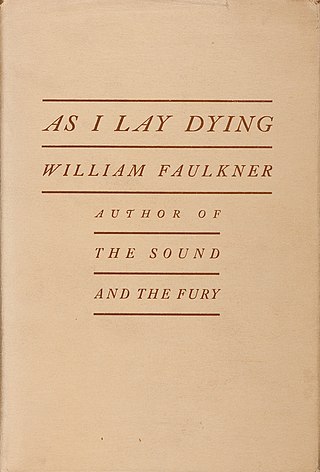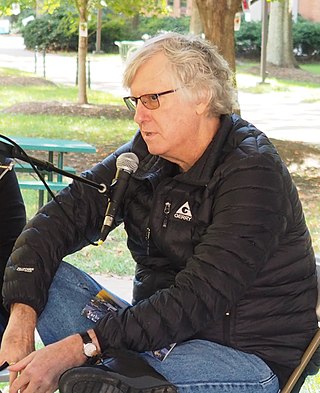
Karen Louise Erdrich is an American author of novels, poetry, and children's books featuring Native American characters and settings. She is an enrolled member of the Turtle Mountain Band of Chippewa Indians, a federally recognized tribe of Ojibwe people.

The Pulitzer Prize is an award administered by Columbia University for achievements in newspaper, magazine, online journalism, literature, and musical composition within the United States. It was established in 1917 by provisions in the will of Joseph Pulitzer, who had made his fortune as a newspaper publisher. Prizes are awarded annually in twenty-two categories. In twenty one of the categories, each winner receives a certificate and a US$15,000 cash award. The winner in the public service category is awarded a gold medal.

William Cuthbert Faulkner was an American writer known for his novels and short stories set in the fictional Yoknapatawpha County, based on Lafayette County, Mississippi, where Faulkner spent most of his life. A Nobel laureate, Faulkner is one of the most celebrated writers of American literature and often is considered the greatest writer of Southern literature.

The Pulitzer Prize for Fiction is one of the seven American Pulitzer Prizes that are annually awarded for Letters, Drama, and Music. It recognizes distinguished fiction by an American author, preferably dealing with American life, published during the preceding calendar year.

Philip Milton Roth was an American novelist and short story writer. Roth's fiction—often set in his birthplace of Newark, New Jersey—is known for its intensely autobiographical character, for philosophically and formally blurring the distinction between reality and fiction, for its "sensual, ingenious style" and for its provocative explorations of American identity. He first gained attention with the 1959 short story collection Goodbye, Columbus, which won the U.S. National Book Award for Fiction. Ten years later, he published the bestseller Portnoy's Complaint. Nathan Zuckerman, Roth's literary alter ego, narrates several of his books. A fictionalized Philip Roth narrates some of his others, such as the alternate history The Plot Against America.

Richard Ford is an American novelist and short story writer. His best-known works are the novel The Sportswriter and its sequels, Independence Day, The Lay of the Land and Let Me Be Frank With You, and the short story collection Rock Springs, which contains several widely anthologized stories. Ford received the Pulitzer Prize for Fiction in 1996 for Independence Day. Ford's novel Wildlife was adapted into a 2018 film of the same name. He won the 2018 Park Kyong-ni Prize.

American literature is literature written or produced in the United States of America and in the colonies that preceded it. The American literary tradition thus is part of the broader tradition of English-language literature, but also includes literature of other traditions produced in the United States and in other immigrant languages. Furthermore, a rich tradition of oral storytelling exists amongst Native Americans.

Yoknapatawpha County is a fictional Mississippi county created by the American author William Faulkner, largely based upon and inspired by Lafayette County, Mississippi, and its county seat of Oxford. Faulkner often referred to Yoknapatawpha County as "my apocryphal county".

As I Lay Dying is a 1930 Southern Gothic novel by American author William Faulkner. Faulkner's fifth novel, it is consistently ranked among the best novels of 20th-century literature. The title is derived from William Marris's 1925 translation of Homer's Odyssey, referencing the similar themes of both works.

Charles Richard Johnson is a scholar and the author of novels, short stories, screen-and-teleplays, and essays, most often with a philosophical orientation. Johnson has directly addressed the issues of black life in America in novels such as Dreamer and Middle Passage. Johnson was born in 1948 in Evanston, Illinois, and spent most of his career at the University of Washington in Seattle.

Intruder in the Dust is a 1948 crime novel written by American author William Faulkner. Taking place in Mississippi, it revolves around an African American farmer accused of murdering a Caucasian man.

Rowan Oak was the home of author William Faulkner in Oxford, Mississippi. It is a primitive Greek Revival house built in the 1840s by Colonel Robert Sheegog, an Irish immigrant planter from Tennessee. Faulkner purchased the house when it was in disrepair in 1930 and did many of the renovations himself. Other renovations were done in the 1950s. One of its more famous features is the outline of Faulkner's Pulitzer Prize–winning novel A Fable, penciled in graphite and red on the plaster walls of his office. It is now owned and operated by the University of Mississippi as a museum, and is open to visitors year-round.

Rabih Alameddine is an American painter and writer. His 2021 novel The Wrong End of the Telescope won the 2022 PEN/Faulkner Award for Fiction.

Steve Yarbrough is an American author and academic, who teaches at Emerson College.

The Hamlet is a novel by the American author William Faulkner, published in 1940, about the fictional Snopes family of Mississippi. Originally a standalone novel, it was later followed by The Town (1957) and The Mansion (1959), forming the Snopes trilogy.
Milton Lott was an author of western novels. He grew up in the Snake River Valley, in Idaho and attended University of California, Berkeley. While there he started writing his first published novel, The Last Hunt. He worked on the novel while attending an English class taught by George R. Stewart, himself a well published author. Lott received a citation from the National Institute of Letters and Arts for The Last Hunt, and was granted a Literacy Fellowship Award by Houghton Mifflin to finish the book. The Last Hunt was selected by the Pulitzer fiction jury for the 1955 Pulitzer Prize, but John Hohenberg convinced the Pulitzer board that William Faulkner was long overdue for the award, despite his submitted novel A Fable being a lesser work of his, and the board overrode the jury's selection, much to the disgust of its members. The Last Hunt was made into a 1957 movie.

The Floating Opera is a novel by American writer John Barth, first published in 1956 and significantly revised in 1967. Barth's first published work, the existentialist and nihilist story is a first-person account of a day when protagonist Todd Andrews contemplates suicide.
Popeye is a character in William Faulkner's 1931 novel Sanctuary. He is a Memphis, Tennessee-based criminal who rapes Temple Drake and introduces her into a criminal world which corrupts her.
Kingsley Widmer (1925–2009) was an American literary critic.















